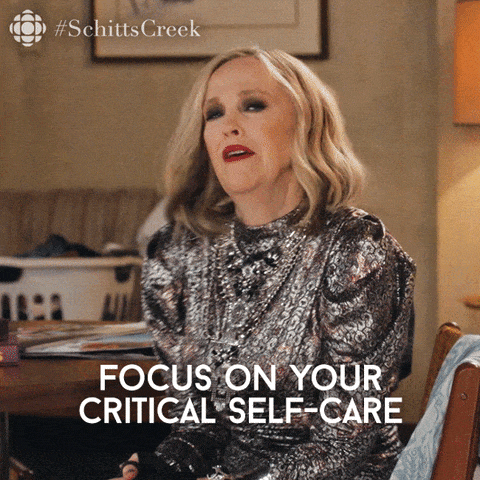Back To School: A Lesson on Self-Care Routines

Recently there has been a huge focus on self-care, with it trending in the media and influencers endorsing it. Self-care routines vary for every individual, based on what they subjectively think helps them. Additionally, a lot of people love the fact that they can categorize different behaviors as self-care.
Contents
Key Points
- Self-care is an important part of your mental and physical health.
- Anything that makes you feel happy and cared for is self-care, but that's not the same thing as being selfish.
- Different activities will fall into spiritual, physical, and emotional self-care routines.
What is self-care?
The most recent definition of self-care, written in 1998 by the World Health Organization defines it as; “the ability of individuals, families and communities to promote health, prevent disease, maintain health, and to cope with illness and disability with or without the support of a healthcare provider”.
Personally, I feel that the 1983 version is a little more insightful, stating; “Self-Care is what people do for themselves to establish and maintain health, and to prevent and deal with illness. It is a broad concept encompassing hygiene (general and personal), nutrition (type and quality of food eaten), lifestyle (sporting activities, leisure etc.), environmental factors (living conditions, social habits, etc.), socio-economic factors (income level, cultural beliefs, etc.) and self-medication.” This definition really showcases how any type of action that is beneficial to you can be considered a part of a self-care routine.

According to Google Trends, the number of searches for “self-care” has more than doubled since 2015. This trend also correlates with increased rates of anxiety and depression. Amongst the myriad of antidepressants, and programs available; self-care routines draw the most interest.
Let's start with a frequent misunderstanding: self-care is not the same as self-indulgence or being selfish. Self-care entails looking after yourself so that you can be healthy, well, do your work, help and care for others, and do all of the tasks you need and desire to complete in a day. Many of us have an idea in our heads that taking time for yourself is bad.
People pleasing is a common way of thinking where people will often do things for others that result in their suffering either emotionally, physically or financially. Unfortunately for people pleasers out there, many forget to also take care of themselves. People like Robin Williams give an extreme example of how one can be in anguish while still bringing immense joy to others.
Types of self-care
Checking in with yourself and asking how you're doing and what your body needs is part of self-care. Some people use it to cope with stressors, while others simply utilize it to maintain their happiness on a daily basis. Self-care means different things to different people. Different people will practice self-care in different ways, and your own concept of self-care may evolve over time. What is self-care for one person may not be self-care for another, and what is self-care for you one day may not be self-care the next.

There are three main categories for activities in self-care routines:
- Emotional self-care - Some examples of emotional self-care are self-talk, weekly bubble baths, saying "no" to activities that create unneeded stress, allowing oneself to take a break, or scheduling a weekly meeting with a buddy.
- Physical self-care - These activities include things like getting enough sleep, sticking to an exercise program, and selecting good, nutritious foods over unhealthy and excessively processed foods.
- Spiritual self-care - Attending a religious service, spending time in nature, meditating, adding regular acts of kindness into your day, or maintaining a gratitude book are all examples of spiritual self-care.
There are also said to be two further categorizations to add to any given activity and those are: temporary and enduring. A temporary activity would be something like going to dinner with your friend. Most likely this would not be a great enduring activity as it would be costly in both money and time, this likely would cause it to negatively impact you. Meditation is an example of an enduring activity you can include in any of your health care routines.
It is important to remember that you can and should have self-care routines (yes plural). Self-care is meant to always feel enjoyable. Depending on your mood, energy level and stressful things going on, running one day might feel great and the next it might sound like torture.

Be sure to always listen to your body and what it wants. When self-care routines are in place and practiced daily, they have been connected to positive health benefits including lower stress, a better immune system, increased productivity, and higher self-esteem
Building a routine
If you don't know where to start in crafting your own self-care routine try these tips:
- Determine what activities you like, bring you joy, give you energy, and make you feel balanced.
- Start small! Choose one behavior you might want to incorporate into your routine in the next week and do it at some point
- Build up consistency. Try to practice a behavior every day for one week.
- Reflect. Journal your thoughts, talk to a friend, just find another time outside of your new activity to check in with you and how you feel.
- Add in additional practices when ready.
Over time you will have a whole bunch of activities that you like to do and all together will form your own unique self-care routine.
Final Thoughts
Self-care can improve your health and perspective, but it necessitates a commitment or desire to engage in your well-being. Self-care is a choice that each person may make to take charge of their own health. Remember you are worth it, by taking care of yourself you can maximize your time and money.

Written by Kiana St. Onge
UP NEXT:
Breaking the Stigma Around Stretch Marks on Thighs (And Everywhere Else Too)
How to Sugar Wax At Home Like a Pro
SOURCES:






